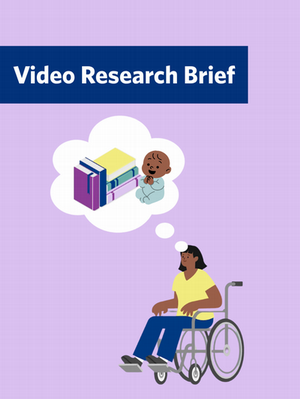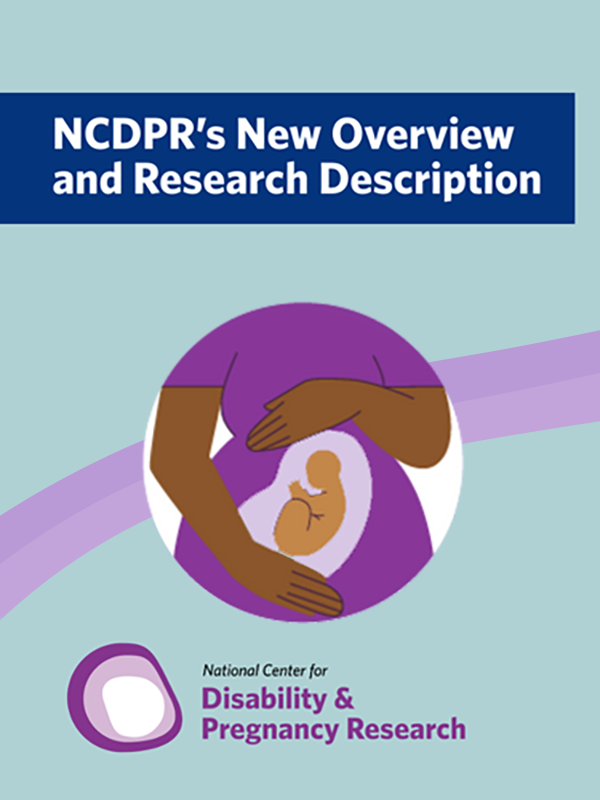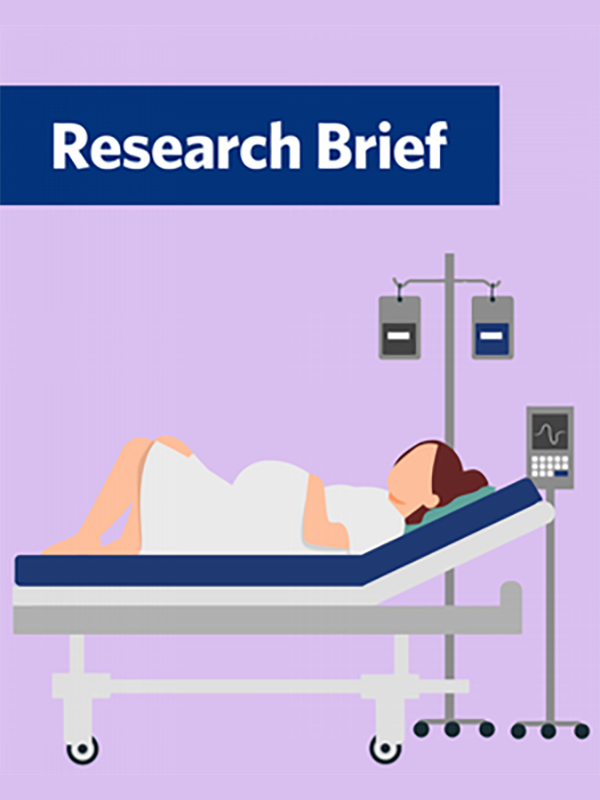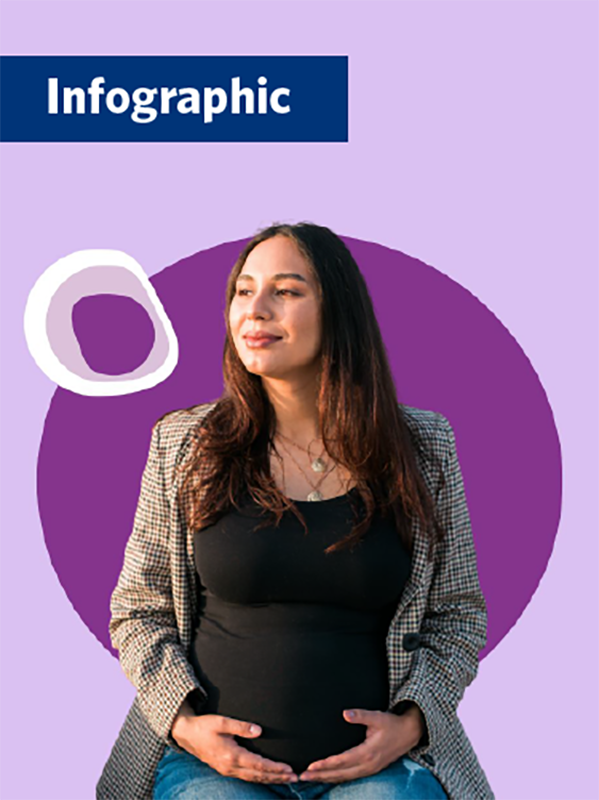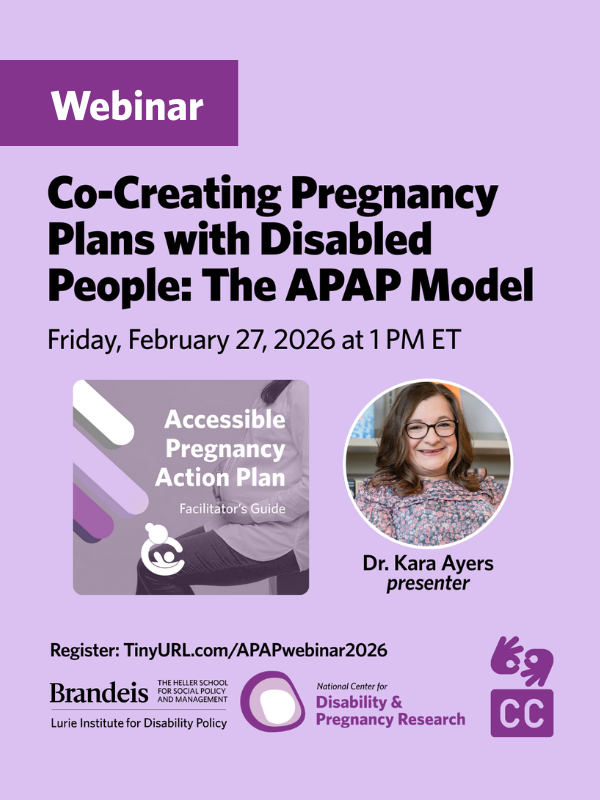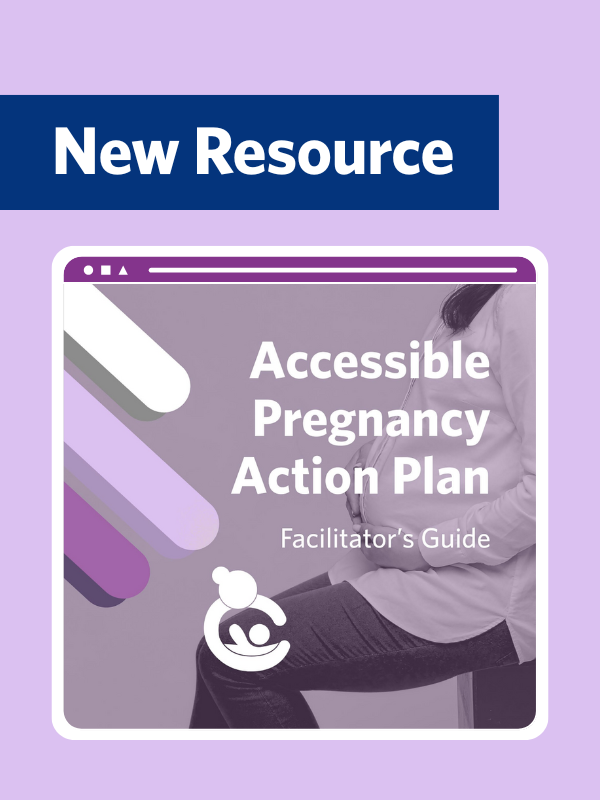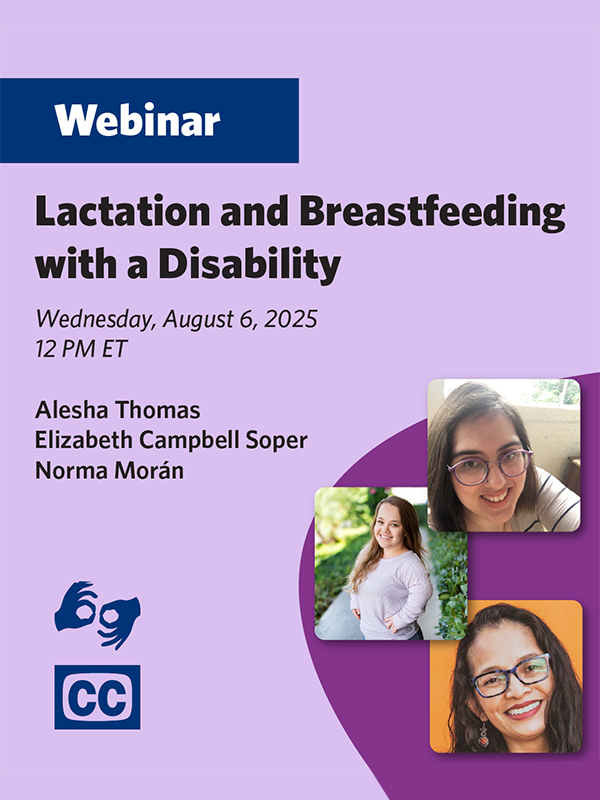Research Briefs & Summaries

News & Events
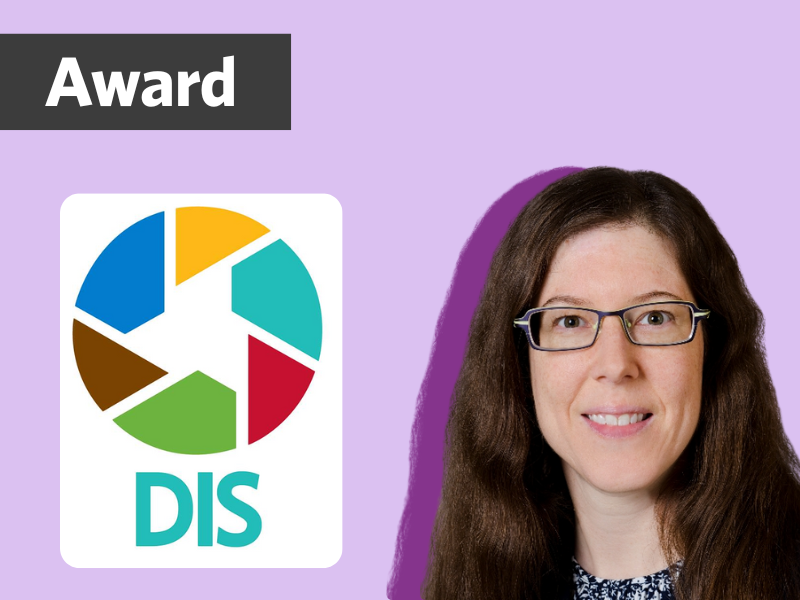
Willi Horner-Johnson Earns APHA Margaret “Peg” Nosek Award
Willi Horner-Johnson, PhD, Co-Principal Investigator at the National Center for Disability and Pregnancy Research, has received the Margaret “Peg” Nosek Award from the Disability Section of the American Public Health Association in recognition of her work expanding understanding of health through research focused on women with disabilities.
Learn more about Dr. Horner-Johnson's work and impact.
![]()
 NCDPR Researchers Quoted in Boston Globe on Gaps in Massachusetts’ IVF Insurance Law
NCDPR Researchers Quoted in Boston Globe on Gaps in Massachusetts’ IVF Insurance Law
![]()
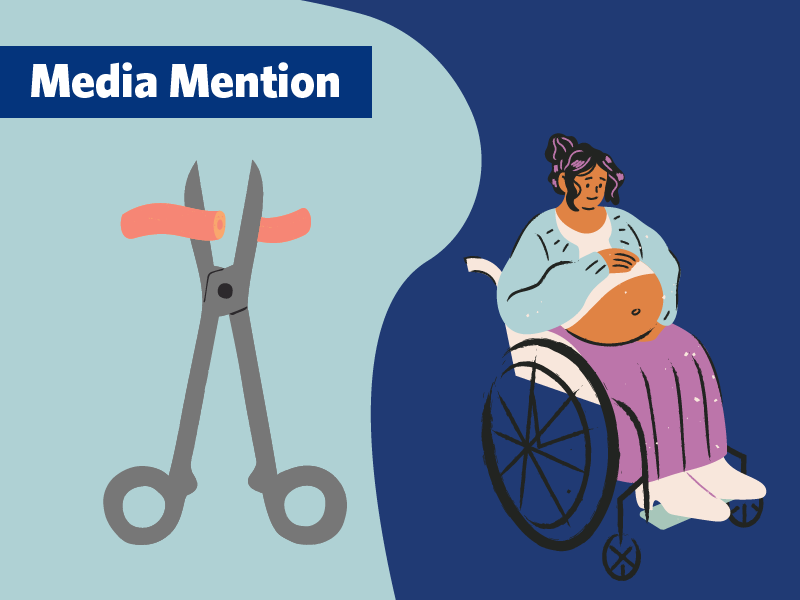 Monika Mitra, Director of the Lurie Institute, Interviewed for Mother Jones Magazine
Monika Mitra, Director of the Lurie Institute, Interviewed for Mother Jones Magazine
Lurie Institute director Monika Mitra was interviewed for Julia Métraux's articles on eugenics, sterilization, and the pregnancy rights of disabled people.
“The narrative has to change,” Mitra said, “so that disabled people have the right to be pregnant, and the right to have children—and the right not to have children.”
Read "Forced Sterilization of Disabled People Isn't a Relic of the Past" and "Pregnancy Is a Minefield When You're Disabled."
![]()
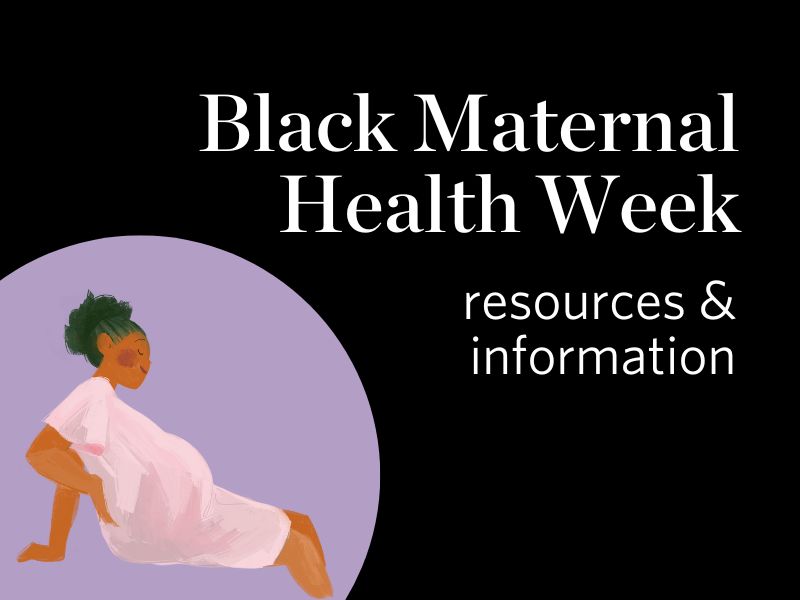 Black Maternal Health
Black Maternal Health
Learn more. Access resources and an infographic on health inequality.
![]()
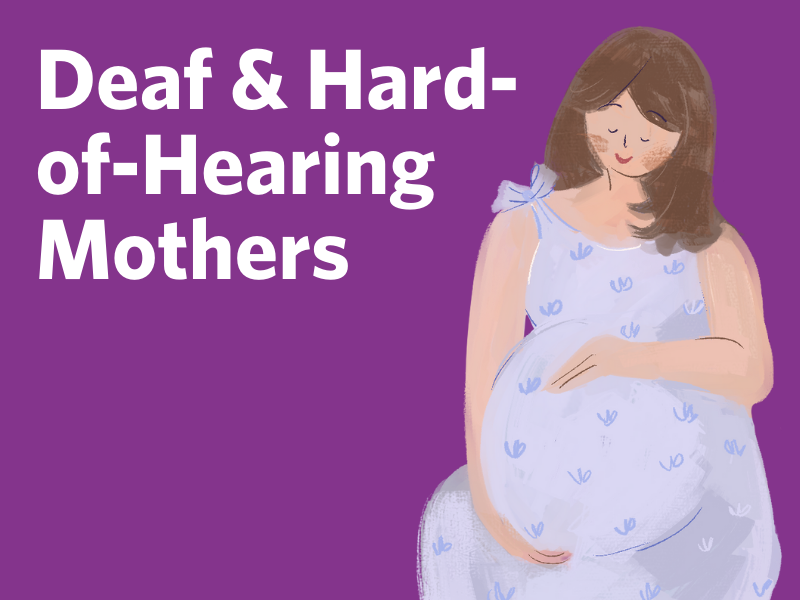 Pregnancy Care Disparities
Pregnancy Care Disparities
Deaf and hard-of-hearing women have distinct healthcare experiences during and after pregnancy, facing disparities in needs and outcomes.
Now also in ASL format!







